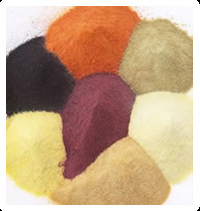Mango Purchase & Information

Alternative Names
Mango, Common Mango, Indian Mango, Mangot, Manga, Mang gou, Mampalam, Mampalang, Mangachupadera, Mangang-kalabau, Mangang-piko, Mangka, Paho, Pao
Scientific Name
Mangifera Indica
Why Do People Use Mango?
The oral preparations of Mangifera indica (Mango), like mango powder, owing to its high content of fiber can help with conditions like constipation and elimination of waste from the colon. The malic acid, tartaric acid and a trace of citric acid content of the fruit helps to balance the the alkali reserve of the body. Enzymes and Antioxidants present in the mango fruits are thought to play productive role in the protection / prevention of various types of heart disease and cancer (breast, colon, prostate and leukemia). Serum cholesterol is controlled by the high content of pectin, fiber and vitamin C present in the mango.
Is It Safe To Use?
Infections referred to Salmonella Serotype Newport (SN) were observed in the United States during 1999 and fresh produce of mango was reported to be the cause of salmonellosis. Over dosage may result in diarrhea and increased rate of blood sugar levels. Therefore, individuals suffering from diabetes should be cautious while taking mango. There is high amount of sugar in mango powder which may result in weight gain in some individuals.
How Effective Is Mango?
Raw mango powder aids the digestive system, as it is an effective medicine for dysentery, summer diarrhea, morning sickness, piles, indigestion and chronic dyspepsia. Mango, when used in combination with milk or rather Soya milk, gives a perfect fusion of protein and sugar for under-weight people. Consumption of this mixture thrice every day for a month will lead to weight gain, better health and increased vigor.
How Mango Works?
The pulp of Mangifera indica is rich in antioxidant vitamins A and C, folate, vitamin B6 (pyridoxine) and different B vitamins. Mango powder further contains copper, potassium and amino acids. Mango pulp and peel contain other compounds such as polyphenols, pigment carotenoids and omega-3 and -6 polyunsaturated fatty acids. The mango lupeol and triterpene are thought to be inhibitor of skin cancers and laboratory models of prostate cancer. Mango branch bark extract, also known as Vimang, was separated by Cuban scientists and consists of a number of polyphenols. These polyphenols have antioxidant properties in vitro and on blood parameters of elderly humans.
What Are The Side Effects /Adverse Reactions of Mango?
Mango powder is a rich source of sugar and over dosage may result in weight gain.
How Mango Interacts With Other Herbs and Supplements?
Not known.
How Mango Interacts With Drugs?
Not known.
How Mango Interacts With Foods?
Not known.
How Mango Interacts With Lab Tests?
Not known.
How Mango Interacts With Diseases and Conditions?
Not known.
What Should Be the Dose/Administration of Mango?
The tender leaves of the mango tree are utilized to control and protect from early symptoms of diabetes. These leaves should be powdered, dried and preserved. Generally people ingest half a teaspoon of this powder two times every day.
Comments
The mango is a fruit that is referred to as the apple (or peach) of the tropics and one of the most generally eaten fruits in tropical countries around the world. Irvingia is a genus of Southeast Asian and African trees in the family Irvingiaceae, which is known by the common names of wild mango, African mango, or bush mango. They bear edible mango-like fruits and are especially valued for their protein- and fat-rich nuts.
General Certificate of Analysis (COA)
Specification sheet links below are a standard copy of the COA less the batch or lot number and manufactures dates. Specification sheet can be dated and should only be considered as a general information. Please contact and request an up to date COA if needed for specific updated information before placing order by filling out the contact form with product name and SKU number. If ordering quantities of twenty five kilos or more contact for availability.
